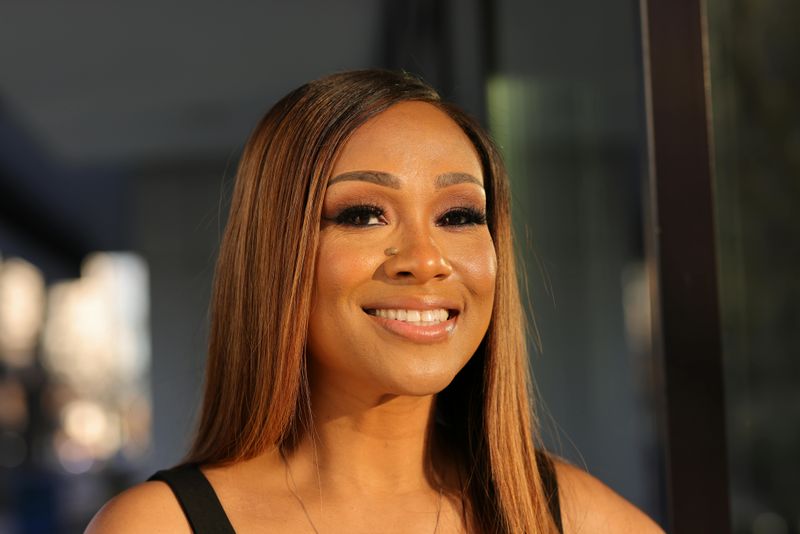13 Small Habits That Make You More Appealing Without Changing Your Looks

Looking more appealing isn’t always about changing your physical appearance. Sometimes, the most attractive qualities come from the small habits we practice daily. These simple behaviors can transform how others perceive us, boosting our charm and magnetic appeal without a single change to our looks. Ready to discover how your everyday actions might be making you more appealing than you realize?
1. Active Listening Skills

People feel valued when you truly listen to them. Put away your phone, maintain eye contact, and nod occasionally to show you’re engaged in the conversation.
Ask follow-up questions that show you’ve been paying attention. This demonstrates genuine interest in what others have to say.
Most folks are waiting for their turn to speak rather than truly listening. When you break this pattern, you immediately stand out as someone who cares about others’ thoughts and feelings.
2. Genuine Smile Practice

A real smile reaches your eyes, creating those little crinkles that signal authentic joy. Practice smiling genuinely by thinking of something that truly makes you happy when greeting others.
Smiling releases endorphins, making you feel better while simultaneously making you more approachable. Even during phone calls, smiling changes your voice tone in ways others can detect.
Regular smilers are rated as more reliable, relaxed, and sincere in studies. This simple facial expression costs nothing but yields tremendous social benefits.
3. Thoughtful Question Asking

Asking thoughtful questions shows you’re engaged and interested. Skip the basic “How are you?” and try “What’s been the highlight of your week?” instead.
Good questions invite people to share meaningful parts of their lives. When someone answers, respond with relevant follow-ups rather than waiting to share your own story.
The ability to ask questions that spark real conversation is increasingly rare in our distracted world. Mastering this habit makes you memorable and creates deeper connections with almost everyone you meet.
4. Remembering Personal Details

Nothing makes people feel more special than when you remember specifics about their life. Recalling a person’s pet’s name, their upcoming trip, or a challenge they mentioned weeks ago shows you value them.
You don’t need a perfect memory for this habit. Simply make mental notes of important details during conversations, or jot them down afterward if you struggle to remember.
When you mention these details in future interactions, you create an instant connection. This small gesture demonstrates thoughtfulness that many find irresistibly appealing.
5. Punctuality Commitment

Being on time consistently signals that you respect others and value their schedule. It’s a simple habit that speaks volumes about your character and reliability.
Planning to arrive 10-15 minutes early helps account for unexpected delays. When you’re consistently punctual, people notice and appreciate not having their time wasted.
This habit extends beyond just showing up on time. Responding promptly to messages and meeting deadlines builds a reputation of dependability that attracts others to both your personal and professional life.
6. Gratitude Expression

People feel seen when you thank them for something real. A heartfelt “I appreciated your help on that project” carries far more weight than a routine “thanks.”
Handwritten thank-you notes have become rare, making them particularly meaningful. Even a brief text acknowledging someone’s help or kindness can strengthen connections.
Grateful people appear more confident and less needy. This balance makes others feel appreciated without being burdened, creating a magnetic appeal that draws people toward you.
7. Name Usage Mastery

Our names are deeply tied to who we are. When someone uses your name in conversation, it activates parts of your brain linked to identity and makes you feel noticed—creating a subtle but powerful bond.
When meeting someone new, repeat their name immediately: “Nice to meet you, Sarah.” Use it naturally once or twice more during your conversation to help cement it in your memory.
Remembering and using names demonstrates respect and personal interest. Many people struggle with this skill, so mastering it makes you stand out positively in both social and professional settings.
8. Posture Awareness

Good posture—standing tall with your shoulders back—quietly communicates confidence. It not only shapes how others see you but also influences how you feel about yourself.
Set reminders to check your posture throughout the day. When sitting, align your ears, shoulders, and hips, and when standing, imagine a string pulling you up from the crown of your head.
Beyond appearance, proper alignment reduces stress on your body and increases oxygen flow. This physical change improves energy levels and mood, making your presence more vibrant and appealing.
9. Curious Mindset Cultivation

The most magnetic people have one thing in common: curiosity. It drives them to explore, discover, and collect stories that turn simple chats into rich experiences.
Read widely, try new experiences, and ask questions about subjects outside your expertise. This habit builds a reservoir of knowledge that makes you a more engaging conversationalist.
Curious people also show more interest in others’ perspectives. This openness to different viewpoints makes you more approachable and creates deeper connections across diverse social circles.
10. Phone-Free Presence

Keeping your phone away during social interactions shows others they have your full attention. This increasingly rare courtesy makes a powerful impression in our distracted world.
Try placing your phone face-down or, better yet, in your pocket or bag during conversations. If you’re expecting an important call, mention it upfront rather than repeatedly checking your screen.
Studies show that merely having a phone visible during conversation reduces connection quality. By being fully present, you create meaningful interactions that others find refreshing and attractive.
11. Vocabulary Positivity

Your language paints the picture others see. Swap complaints for constructive insights, and watch how your social presence transforms almost instantly.
Notice how often you use negative phrases like “I hate” or “This is terrible.” Challenge yourself to reframe these thoughts in neutral or positive terms.
Positive language doesn’t mean being fake or ignoring problems. Rather, it’s about approaching challenges with solution-focused words that make others feel comfortable and inspired around you.
12. Small Kindness Consistency

Sometimes, the smallest kindnesses mean the most. Simple actions like holding doors or sending a supportive text send ripples through your social world that reach far beyond.
Consistency matters more than grand gestures. Regular small kindnesses build a reputation as someone who genuinely cares about others’ wellbeing.
These habits become part of your character over time. People are naturally drawn to those who make them feel good, making this perhaps the most powerful appeal-boosting habit of all.
13. Personal Boundary Setting

Healthy boundaries make you more appealing by showing self-respect. Saying no when necessary signals that your time and energy are valuable.
Clear boundaries prevent resentment that can sour relationships. When declining requests, keep it simple: “I can’t take that on right now” works better than elaborate excuses.
Contrary to fears, setting boundaries typically increases others’ respect for you. This practice helps attract relationships based on mutual respect rather than obligation or people-pleasing, creating more authentic connections.

Comments
Loading…